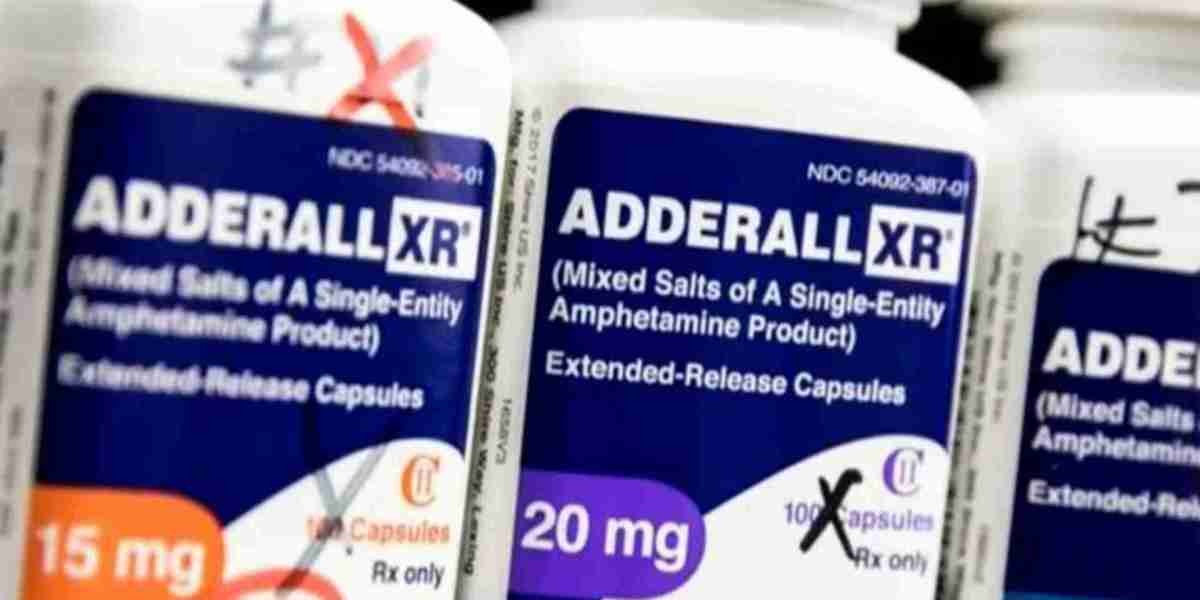Adderall, a prescription medication commonly used to treat Attention Deficit Hyperactivity Disorder (ADHD) and narcolepsy, has been linked to various side effects, including dry mouth, increased heart rate, and appetite suppression. However, one lesser-discussed side effect that some users report is the onset or worsening of acne. In this article, we explore the potential connection between Adderall and acne, diving into the science behind it and offering solutions for those affected.
What Is Adderall?
Adderall is a stimulant medication that contains two active ingredients: amphetamine and dextroamphetamine. These compounds work by increasing the levels of certain neurotransmitters in the brain, such as dopamine and norepinephrine. This boost in brain activity helps people with ADHD to focus better and manage symptoms like impulsivity, hyperactivity, and inattention. Adderall is also used in some cases to treat narcolepsy, a sleep disorder characterized by excessive daytime sleepiness.
Common Side Effects of Adderall
Like many medications, Adderall comes with a range of side effects. Common ones include:
Appetite suppression
Dry mouth
Insomnia
Increased heart rate
Nervousness or anxiety
However, some users have reported skin changes, including dryness, irritation, and the appearance of acne, which leads to the question: Is there a does Adderall cause acne?
The Science Behind Adderall and Acne
There is no direct evidence in medical literature proving that Adderall causes acne. However, several factors related to Adderall usage could contribute to the development of acne or make existing acne worse.
Increased Stress Levels
Adderall is a stimulant, and stimulants can increase stress hormones like cortisol. Elevated cortisol levels have been linked to acne flare-ups. Cortisol triggers the production of excess sebum (oil) in the skin, which can clog pores and lead to breakouts. If you are experiencing heightened stress or anxiety while taking Adderall, this may contribute to the appearance of acne.
Dehydration and Dry Skin
A common side effect of Adderall is dry mouth, but the medication can also cause dehydration in general. When the skin becomes dry, the body may overcompensate by producing more oil. This excess oil can clog pores, contributing to the development of acne.
Changes in Sleep Patterns
Insomnia or disrupted sleep is another side effect of Adderall. Poor sleep has been closely associated with worsened skin conditions, including acne. Sleep is crucial for skin repair and regulating hormones. A lack of sleep can increase inflammation and stress, both of which can exacerbate acne.
Dietary Changes
Adderall is known to suppress appetite, which can lead to poor nutrition. Some people may consume quick, unhealthy snacks or skip meals entirely while on Adderall. A lack of essential nutrients can affect skin health, making it more prone to breakouts. Additionally, sugary or processed foods, which some may reach for when their appetite does return, are linked to acne development.
Who Is More Likely to Experience Acne from Adderall?
While not everyone who takes Adderall will experience acne, certain individuals may be more prone to developing it. These include:
Individuals with a History of Acne:
If you've struggled with acne in the past, you may be more susceptible to experiencing breakouts while taking Adderall.
Those with Sensitive Skin:
People with sensitive or reactive skin may notice changes in their skin due to dehydration or hormonal shifts caused by the medication.
Teens and Young Adults:
Acne is already more prevalent among teenagers and young adults due to hormonal changes. The addition of a stimulant medication like Adderall could exacerbate skin issues in this age group.
How to Manage Acne While Taking Adderall
If you suspect that Adderall is contributing to your acne, there are several steps you can take to help manage and reduce breakouts.
Stay Hydrated
Dehydration can worsen acne, so it’s crucial to drink plenty of water throughout the day. Aim for at least 8 cups of water daily to keep your skin hydrated and to flush out toxins that can contribute to breakouts.
Maintain a Healthy Diet
Proper nutrition is essential for healthy skin. Ensure that you're eating a balanced diet rich in fruits, vegetables, whole grains, and lean proteins. Avoid processed foods and excessive sugar, which are known to worsen acne.
Adopt a Skincare Routine
Establishing a consistent skincare routine can help manage acne. Cleanse your face twice a day with a gentle, non-comedogenic cleanser to remove excess oil and dirt. Moisturize daily, even if your skin feels oily, and consider using acne-fighting ingredients like salicylic acid or benzoyl peroxide.
Get Enough Sleep
Prioritize sleep to allow your skin time to repair itself. If Adderall is causing insomnia, talk to your doctor about possible adjustments to your dosage or schedule. Practicing good sleep hygiene, such as avoiding screens before bedtime, may also help.
Manage Stress
Since stress is a known trigger for acne, managing your stress levels is crucial. Incorporate relaxation techniques such as meditation, deep breathing, or yoga into your daily routine. Taking breaks during your day to unwind can also lower cortisol levels and reduce acne flare-ups.
Consult Your Doctor
If acne becomes a persistent issue while taking Adderall, consult your healthcare provider. They may adjust your dosage, change the timing of your medication, or recommend additional treatments such as topical acne medications or oral antibiotics to help manage breakouts.
Should You Stop Taking Adderall if You Develop Acne?
Acne alone is generally not a reason to stop taking Adderall, especially if the medication effectively manages your ADHD or narcolepsy symptoms. However, if the acne becomes severe or is affecting your quality of life, it’s worth discussing alternative treatments with your healthcare provider. Sometimes, a small adjustment in dosage or adding skincare treatments can make a significant difference without discontinuing the medication.
Conclusion
While there is no definitive scientific link between Adderall and acne, various factors such as dehydration, stress, and changes in sleep and diet while taking the medication can contribute to breakouts. By adopting a healthy lifestyle, maintaining good skincare habits, and consulting your doctor when necessary, you can manage acne effectively without compromising the benefits of Adderall. If you notice any significant changes in your skin, don’t hesitate to reach out to a healthcare professional for personalized advice.














